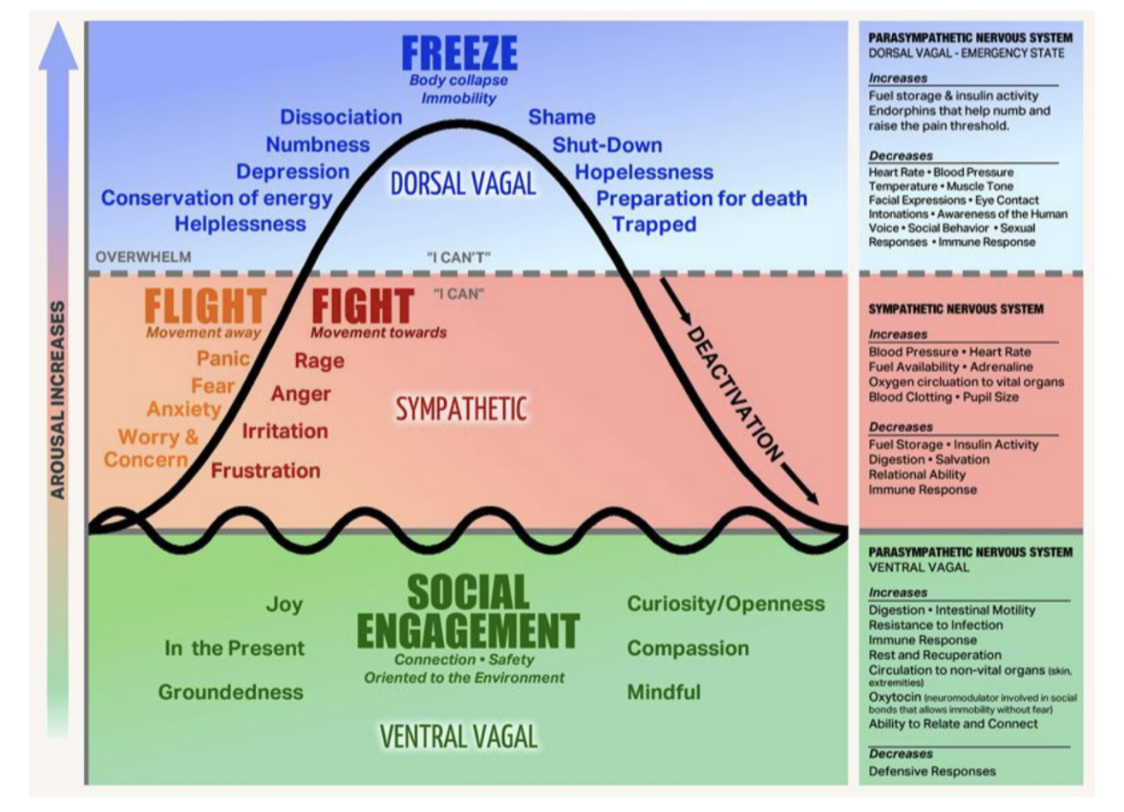Fight, Flight, or Freeze
Julia Papale, Advanced Clinical Fellow
You may have heard the term ‘fight, flight, or freeze’ before. This is the body’s autonomic nervous system picking up a trigger that it has identified as dangerous or stressful in some way.
From an evolutionary standpoint before the thinking brain (the prefrontal cortex) was developed, our bodies were wired to respond to and mobilize against threats like tiger attacks, for example.
The nervous system has two branches: the parasympathetic nervous system, responsible for the rest and digest or freeze states, and the sympathetic nervous system, responsible for the fight or flight response.
The body’s intelligence developed such that if our ancestors were in fact attacked by that tiger, the parasympathetic nervous system would release opiates to help the body go limp, which may lead the predator to walk away.
The vagus nerve, which regulates digestion as well as heart and breath rate, is the largest nerve in the parasympathetic nervous system and also comprises two parts: the ventral vagal nerve and the dorsal vagal nerve. When the ventral vagal nerve is activated, we are in a state of connection and safety, also known as social engagement. When the dorsal vagal nerve is activated, we are frozen, shut down, or immobile. The below diagram is a helpful visual for this process.
So how can we access this social engagement, ventral vagal state of groundedness, openness, and mindfulness, when we weren’t there, to begin with? How do we de-stress and find that sense of calm? Using breath, meditation, and exercise are all great strategies. If you’d like one more for your repertoire, you might try an ear massage, which you can watch Nicole La Perla demonstrate on YouTube here, or read the quick step-by-step process below.
While this can be a helpful strategy to de-stress at the moment, doing an exercise like this one, or anything else that helps to calm your nervous system on a consistent basis will yield even greater benefits. Happy massaging!
Sources:
Alison. (2021, January 9). Polyvagal theory. Mindfully Well Counseling Cork.
https://corkpsychotherapyandtraumacentre.ie/trauma/polyvagal-theory/
Frederickson, Jon. Anxiety Assessment Part [Video].
https://www.youtube.com/watch?v=22yLR49VUeM&t=301s
La Perla, Nicole. [The Holistic Psychologist]. How To Do A Vagus Nerve Massage [Video].
https://www.youtube.com/watch?v=9uZ1rnKF5DU


